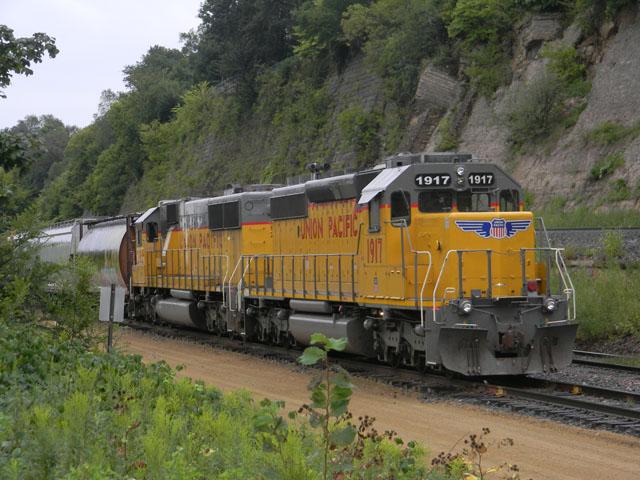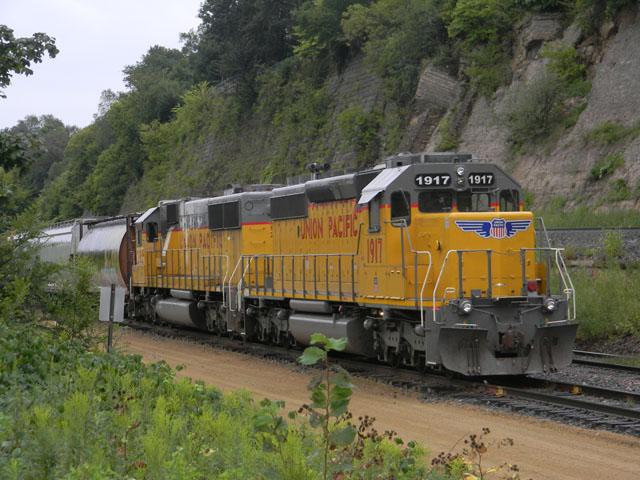Market Matters Blog
STB Adopts Final Rail Reciprocal Switching Rule in Unanimous Vote
The Surface Transportation Board (STB, Board) announced in a press release on its website April 30 it has adopted a final rule version of 49 CFR (Code of Federal Regulations) part 1145, that reflects certain modifications to the proposal in the 2023 Notice of Proposed Rulemaking (NPRM) Reciprocal Switching for Inadequate Service.
By unanimous vote, the STB implemented new regulations at 49 CFR part 1145 which sets forth a path for shippers and receivers to petition for the prescription of a reciprocal switching agreement. The final rule is designed to promote adequate rail service.
Under the final rule, customers within a terminal area with access to only one Class I rail carrier may petition the STB to order a reciprocal switching agreement when the customer's rail service falls below specified levels. Board-prescribed reciprocal switching agreements will allow shippers or receivers to gain access to an additional line haul carrier, while still allowing the incumbent carrier to compete for the customer's traffic. Reciprocal switching orders will be for a minimum of three years and a maximum of five years, according to the announcement.
This contentious issue has been ongoing since July 27, 2016, when the STB issued an NPRM in Reciprocal Switching under which the agency would exercise its statutory authority to require rail carriers to enter into reciprocal switching agreements.
On Sept. 7, 2023, the STB issued an NPRM that would provide for the prescription of reciprocal switching agreements with emphasis on rail service performance. The STB explained, "given the recurring service problems that plague the industry, it would focus reciprocal switching reform on service-related issues." The STB received many comments from interested parties.
"Nearly 40 years ago, the ICC, by rule and by subsequent decisions, established what was perceived as a high bar for the issuance of a reciprocal switching order. Indeed, no reciprocal switching orders have been issued since before 1985, and none have even been sought since 1989. The rail network of 1985 is a far cry from that of today, and significant change is overdue," said STB Chairman Martin J. Oberman.
P[L1] D[0x0] M[300x250] OOP[F] ADUNIT[] T[]
"By a unanimous vote, the Board took a crucial step to lifting these decades-old barriers to reciprocal switching for captive shippers. The rule adopted today has broken new ground in the effort to provide competitive options in an extraordinarily consolidated rail industry. Given the repeated episodes of severe service deterioration in recent years, and the continuing impediments to robust and consistent rail service despite the recent improvements accomplished by Class I carriers, the Board has chosen to focus on making reciprocal switching available to shippers who have suffered service problems over an extended period of time," added Oberman.
"I hope that the Class I carriers will heed the call of this rule and not only improve their service levels but maintain them consistently over time. If they do, they will be fulfilling their critical obligations to both their customers and the public, while at the same time minimizing the need for the Board to enact even more far-reaching regulatory requirements," concluded Oberman.
The Association of American Railroads commented in the final decision document, "Sweeping switching requirements would undermine the use of differential pricing, which AAR characterizes as critical to the health of the rail network. Additional disadvantages include inefficient routing, increased congestion, environmental costs that are associated with increased use of fuel and emissions, train delays, higher risk of service failure due to increased 'touches,' depressed incentives for future investment with resulting reductions in the quality of service, operational inefficiencies, safety risks, and threats to carriers' ability to recover the costs of their entire networks and to maintain financial viability."
While naming a litany of alleged disadvantages in the final decision document, AAR asserted that provision for the prescription of reciprocal switching agreements would provide no public benefit. AAR suggested the only benefit would be any benefit that accrued to the successful petitioner and that this benefit would impose burdens on others, for example, by causing disruptions or inefficiencies in rail service on a system-wide basis.
National Grain and Feed Association (NGFA) President and CEO Mike Seyfert in a news release said, "NGFA is committed to continuing to work with the STB and railroads as much as possible to improve the performance and efficiency of the rail network. Throughout the rulemaking process, NGFA agreed with the Board that Class I railroads must have greater incentives to improve rail service to their customers and to make continued investments in crews and equipment. Data-sharing measures supported by NGFA included in the final reciprocal switching rule will serve to both inform and incentivize railroad performance."
The American Chemistry Council (ACC) said in a press release on its website that the STB missed an opportunity to address freight rail problems when it adopted the final rule on reciprocal switching. "It's good to see that there is unanimous agreement at the STB that the status quo is not acceptable and freight rail reform is needed. Unfortunately, the Board's reciprocal switching rule is too narrow to help most shippers and does not address the heart of the matter; removing barriers to competition for all freight rail customers. It simply does not go far enough and do enough to incentivize the railroads to provide reliable and competitive service," said Chris Jahn, ACC President and CEO.
Board Member Robert Primus said in a separate expression, "I am voting for the final rule because something is better than nothing. But there is far less 'something' in it than I had hoped there would be.
"I also do not share the optimism reflected in the decision's expectation that part 1145 will be a significant step in incentivizing Class I railroads through competition to achieve and maintain higher service levels on an ongoing basis. This is a missed opportunity. Almost 13 years after the National Industrial Transportation League filed its petition for rulemaking with regard to reciprocal switching, the Board is adopting rules that do nothing with respect to the statute's competitive rail service prong and may not do very much under the public interest prong. We should do more, we should do better, and we should do it without letting another decade pass."
The STB's decision will be effective 120 days from the date of publication in the Federal Register.
Link to Federal Register 49 CFR Part 1145: https://public-inspection.federalregister.gov/…
The entire rule can be found here on April 30, 2024, docket number EP_711_2: https://www.stb.gov/…
Statement From STB Chairman Martin J. Oberman Regarding Final Rule For Reciprocal Switching: https://www.stb.gov/…
Mary Kennedy can be reached at Mary.Kennedy.dtn.com
Follow her on social platform X @MaryCKenn
(c) Copyright 2024 DTN, LLC. All rights reserved.





Comments
To comment, please Log In or Join our Community .